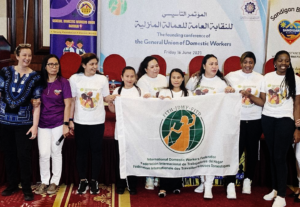
Domestic Workers Fight for their Rights | News Report: July 2023
After a long hiatus, here’s our news roundup report for July 2023, compiling news about migrants and refugees in Lebanon, and the region.

After a long hiatus, here’s our news roundup report for July 2023, compiling news about migrants and refugees in Lebanon, and the region.

نعيد نشر الدليل الذي قام بنشره حساب «المسيرة العالميّة للنساء – لبنان» بعنوان ” ما الذي يمكن عمله قانونياً في ظل موجة الاعتقالات والترحيل للاجئين/ات السوريين/ات؟”
يوضّح الدليل خطوات يمكن للأفراد أو المجموعات المناهضة للعنصرية باتخاذها في حالات الاعتقال أو الترحيل
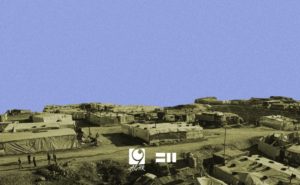
This letter has been prepared in a coordinated effort by civil society and NGOs, calling on UNHCR to increase cooperation and transparency with local organizations to respond to the alarming deportations of Syrian refugees from Lebanon to Syria.

🎧Introducing Women of the blame (Femmes Coupables) – a podcast featuring migrant domestic workers in Lebanon, sharing their stories and their struggles to overcome migration difficulties.
🎙️4 episodes tackling personal experiences of migration and refugees that are often left out of media coverage.
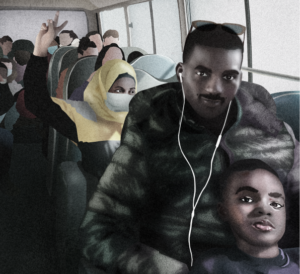
Our Annual Report for 2022 is out! It was a turbulent year for ARM, migrant workers, and refugees in Lebanon as violence towards civil society, activists, and social movements increased.

On Saturday 21st of January 2023, our colleague, ally, and friend Samuel (Sami) Tesfaye was arrested in Beirut Rafic Hariri airport, on his way back from Ethiopia for a family visit. The arrest is under the premise that Sami violated the arbitrary conditions of his residency, imposed on him, and countless migrants, by the Kafala system.
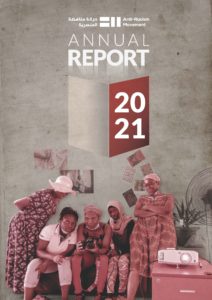
The context in 2021 was riddled with uncertainties, lockdowns, and fuel and electricity shortages which imposed countless restrictions on our ability to carry out our most basic tasks. 2021 started with one of the strictest national COVID-19 lockdowns globally, with an around-the-clock curfew imposed on all “non-essential” workers. We deemed our work to be more essential now than ever, since Migrant Domestic Workers around the country were struggling to make ends meet, whether these ends were the most basic needs for survival, to find a job and/or a house, or escape an abusive one, or to secure a flight ticket and a passport to go back home.
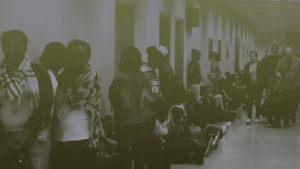
Non-Lebanese communities are often portrayed as criminals in the media. But what about the crimes committed against migrants and refugees in Lebanon?
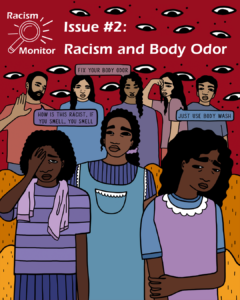
The “problem” of body odor is a social problem that is, more often than not, linked to patterns of racist behaviors.
For the second issue of the Racism Monitor, we wanted to highlight some quotes from the testimonies we received from migrant domestic workers, which document their experiences with racist violations and discrimination against them based on their “Body Odor.”
At the Anti-Racism Movement (ARM), we are constantly working on a multitude of different activities and initiatives. Most of our activities are only possible with the help of dedicated and passionate volunteers who work in collaboration with our core team.
The Anti-Racism Movement (ARM) was launched in 2010 as a grassroots collective by young Lebanese feminist activists in collaboration with migrant workers and migrant domestic workers.
This work is licensed under a Creative Commons Attribution 4.0 International License.
Developed by CONCAT